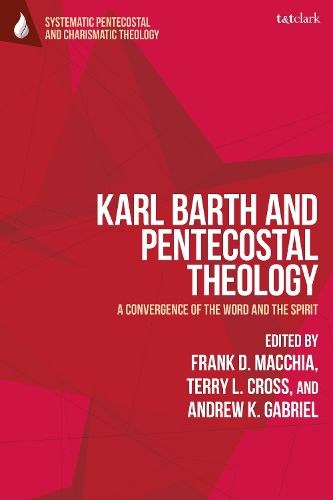Readings Newsletter
Become a Readings Member to make your shopping experience even easier.
Sign in or sign up for free!
You’re not far away from qualifying for FREE standard shipping within Australia
You’ve qualified for FREE standard shipping within Australia
The cart is loading…






The essays in this volume evaluate and build on Barth's theology from the perspective of Pentecostal theology and, thereby, contribute to constructive Pentecostal systematic theology by using Barth as a valuable dialogue partner. At present, a theological conversation of Pentecostals with Barth does not exist and this volume fills this void. More widely, it will aid all those who seek a convergence of the Word and the Spirit in theology.
Barth and Pentecostals share some important common theological interests. Barth's mature theology has a decidedly christological emphasis. Likewise, historically, Pentecostals have often spoken of a "full gospel" with an emphasis on Christ as savior, healer, baptizer (in the Spirit), and soon-and-coming King, with some Pentecostal traditions also adding a fifth emphasis on Christ the sanctifier. Furthermore, near the end of his life, Barth anticipated "the possibility of a theology of the third article, a theology where the Holy Spirit would dominate and be decisive." The realization of Barth's dream is no doubt coming to pass in part through the development of Pentecostal theology in as much as pneumatological theology (exploring how pneumatology affects, supplements, and might reform other doctrines) is an emerging paradigm for Pentecostal theology.
$9.00 standard shipping within Australia
FREE standard shipping within Australia for orders over $100.00
Express & International shipping calculated at checkout
The essays in this volume evaluate and build on Barth's theology from the perspective of Pentecostal theology and, thereby, contribute to constructive Pentecostal systematic theology by using Barth as a valuable dialogue partner. At present, a theological conversation of Pentecostals with Barth does not exist and this volume fills this void. More widely, it will aid all those who seek a convergence of the Word and the Spirit in theology.
Barth and Pentecostals share some important common theological interests. Barth's mature theology has a decidedly christological emphasis. Likewise, historically, Pentecostals have often spoken of a "full gospel" with an emphasis on Christ as savior, healer, baptizer (in the Spirit), and soon-and-coming King, with some Pentecostal traditions also adding a fifth emphasis on Christ the sanctifier. Furthermore, near the end of his life, Barth anticipated "the possibility of a theology of the third article, a theology where the Holy Spirit would dominate and be decisive." The realization of Barth's dream is no doubt coming to pass in part through the development of Pentecostal theology in as much as pneumatological theology (exploring how pneumatology affects, supplements, and might reform other doctrines) is an emerging paradigm for Pentecostal theology.